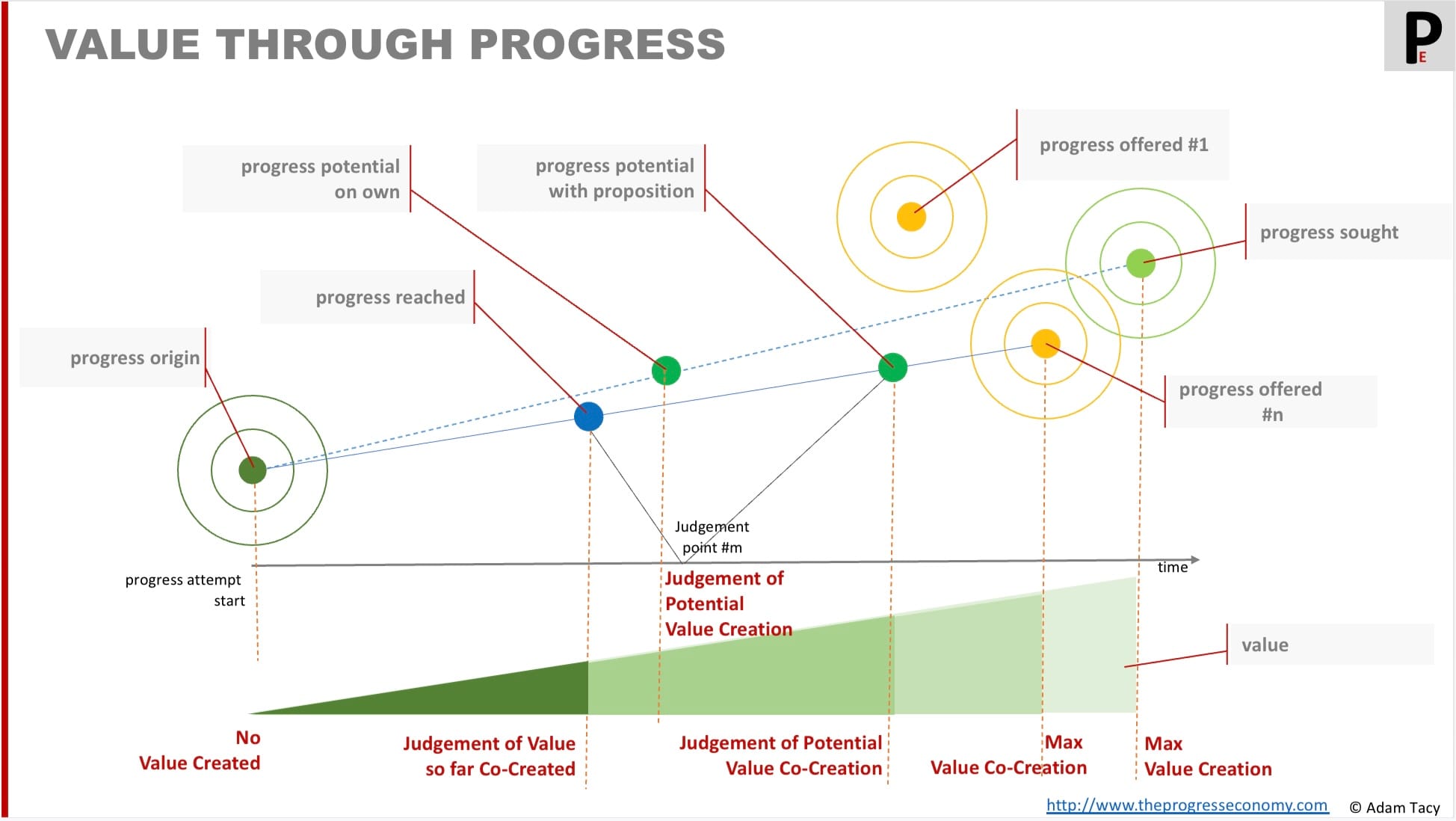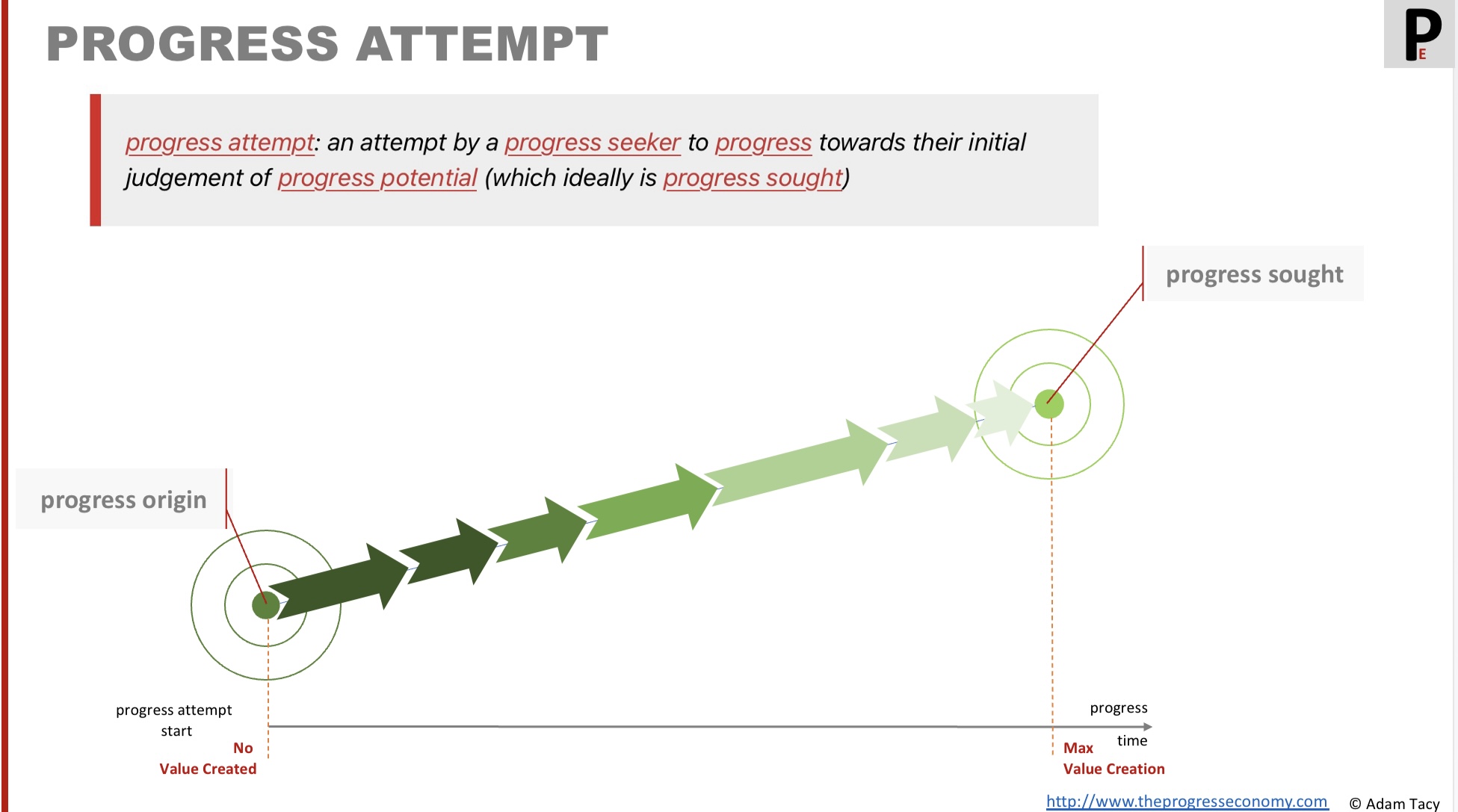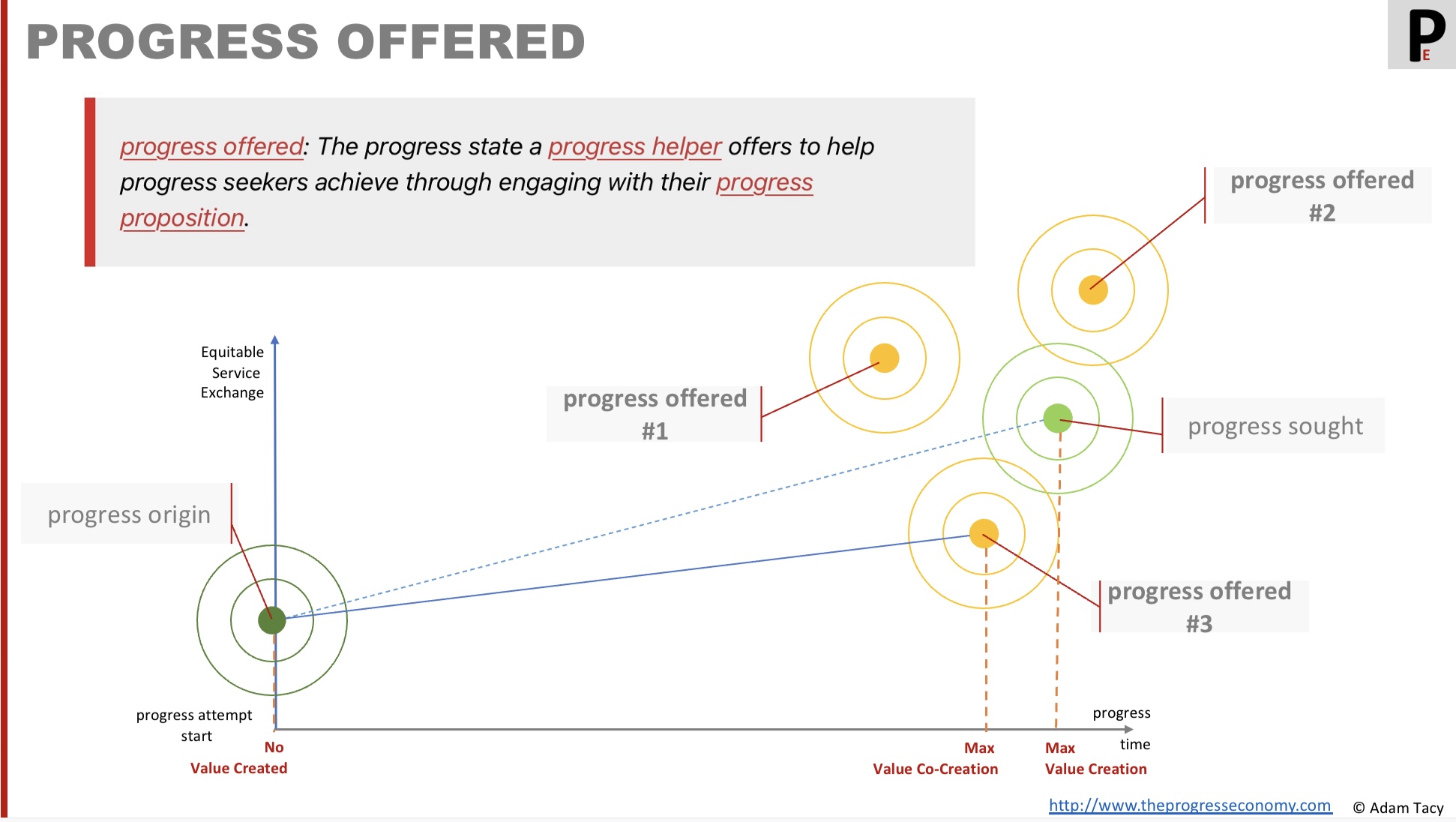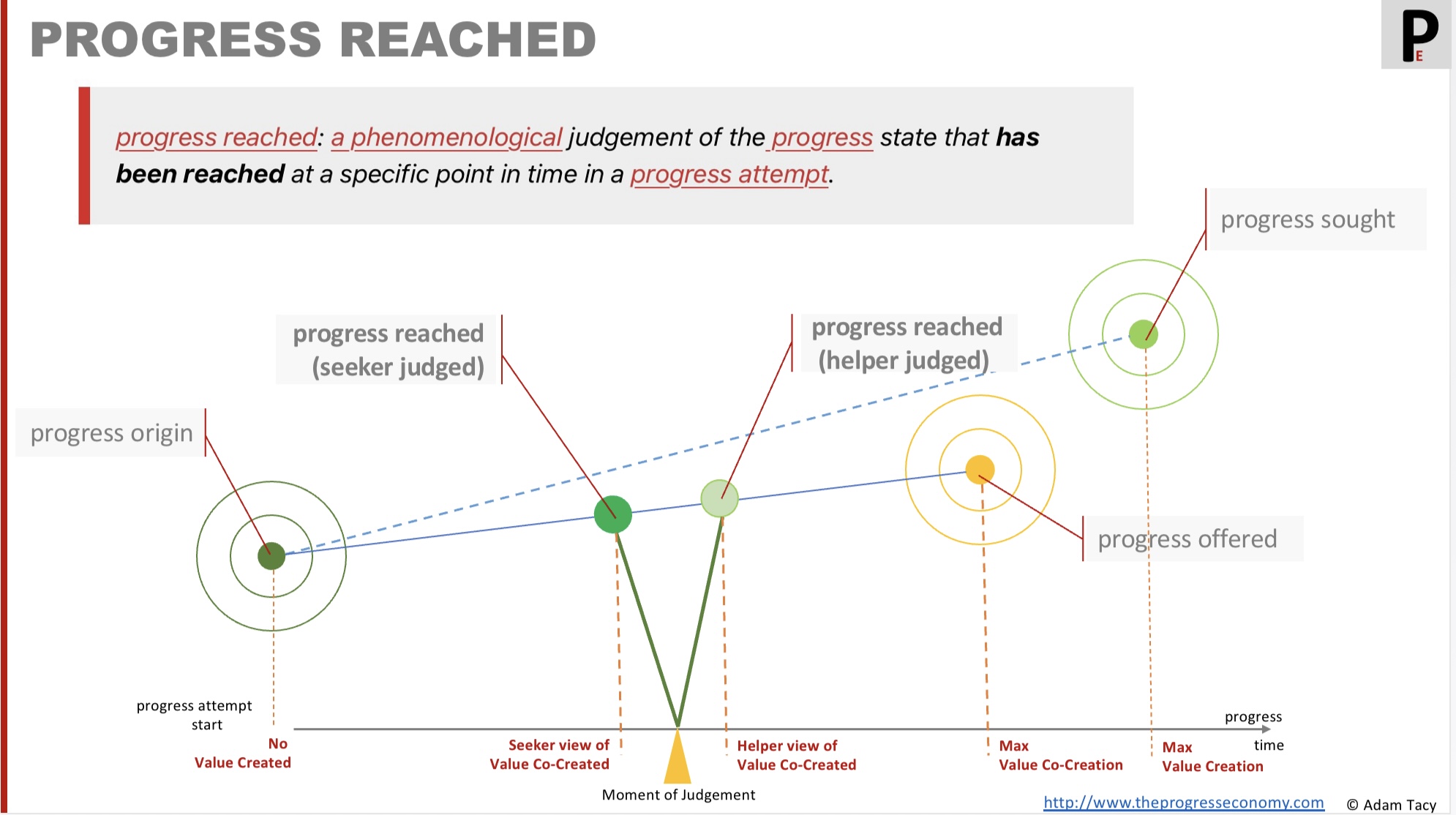-
Value-through-progress
The progress economy reframes value creation by focusing on progress rather than static value. Progress is seen as a dynamic movement towards a more desirable state, with value emerging as this progress is made. This approach encourages systematic innovation by addressing progress hurdles and recognizing the complexities and multifaceted nature of value creation.
-
Progress Attempts
What we’re thinking Progress attempts are how seekers reach their individual progress sought. They’re a tale of progress-making activities, resources, resource integrations, judgements of progress, progress hurdles; success and failure. Expanding on the concepts of progress, and, that value emerges from that. Let’s explore here how a seeker attempts to progress (which forms the foundation […]
-
Progress Offered
What we’re thinking Progress offered is the progress state a progress proposition offers to help a seeker reach. Ideally, it should match each individual seeker’s progress sought. However, such customisation can significantly raise the equitable exchange progress hurdle. To address this challenge, helpers often segment seekers by progress sought, offering one or more generic progress offered. This […]
-
Progress Potential
What we’re thinking Progress potential is the progress state that an actor phenomenologically judges, at particular moment in time, could be reached in a progress attempt. It is regularly judged by progress seekers as part of their decision process to start and continue progress attempts, alone or with propositions. Progress helpers predict it for their […]
-
Progress Sought
What we’re thinking Progress sought is the more desirable progress state – functional, non-functional, and contextual – a progress seeker wishes to reach. It’s the primary named state in the progress economy. And when reaching it, the seeker can recognise maximum value. Understanding the progress that seekers seek is crucial in creating and evolving progress propositions, segmenting […]
-
Progress Reached
What we’re thinking Progress reached is the progress state that an actor phenomenologically judges to have been reached at a specific point during a progress attempt. These judgements relate to value in two ways. First it indicates how much value an actor feels has emerged by that point. Secondly, we find that for emerged value […]
-
Progress Origin
What we’re thinking Every progress attempt starts from a seeker’s unique progress origin. It’s somewhere that influences a seeker’s feelings of lack of resource and progress potential; and which can change between attempts. And a place where no progress has occurred, and so no value has emerged. Progress propositions also need to assume a seeker’s […]
-
Progress as a verb and a state transition
What we’re thinking Progress is a verb – a seeker moving over time from their progress origin to their more desired state of progress sought. And since progress origin and progress sought are progress states, we can also think of progress as a state transition. It is a journey a seeker can attempt on their […]
-
Progress as a State
What we’re thinking Progress is a state – a snapshot comprising three elements, namely: Discovering and understanding all three elements is critical for understanding seeker’s desires, making progress, progress propositions, value, and pursuing successful innovation. Failing to do so may lead to the next super-market self checkouts… Progress as a state Progress as a state […]
-
Progress as a noun
What we’re thinking We find it beneficial to name some specific progress states. Firstly, these named states serve as waypoints describing a seeker’s journey on progress attempts. Secondly, they help us explore and explain value in the progress economy; explaining Drucker’s famous quote: Innovate or die Without further delay, let’s delve into the five commonly used named […]









